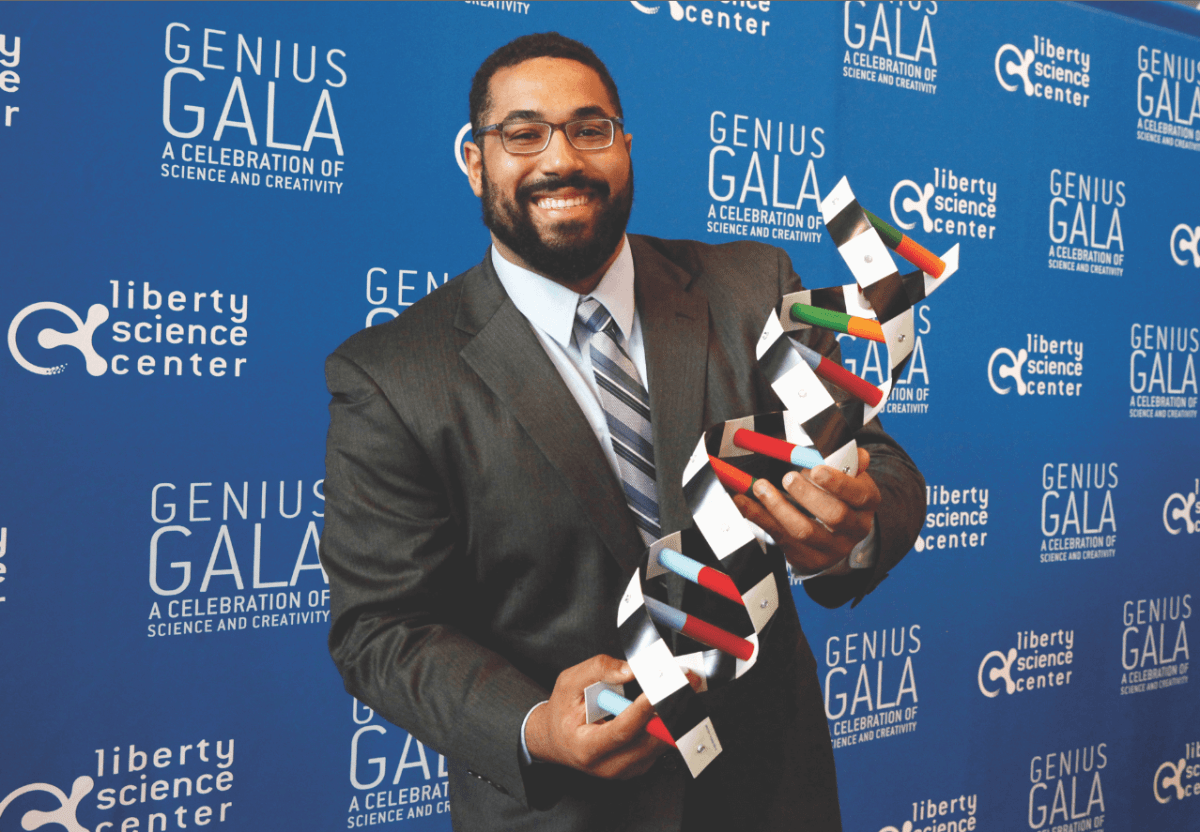John Urschel is best known as an offensive lineman for the Baltimore Ravens. But he’s also a mathematics whiz who has published academic papers (his latest: “A Cascadic Multigrid Algorithm for Computing the Fiedler Vector of Graph Laplacians”!!!), taught college calculus (at alma mater Penn State) and presented research to the NSA. In addition to teaching during the off-season, Urschel is now partnering with new startup Persado, figuring out how to use math to generate compelling ad copy. (So, he can add “Don Draper 2.0” to his résumé, too.) We caught up with the OG mathlete and asked him why it’s important for football players to know their times tables.
So, does math make you a better football player? Is there a connection between math and football?
Mainly the competitiveness. That strong competitive drive — “I’m going to beat you” — is the same when it comes to tackling a math problem — like, “I am going to solve this and get at this and be victorious.” Beyond that, the better you are at thinking quickly and efficiently, the better of a football player you’re going to be. One of the most important components of being an athlete is being able to see something and make [the right] split-second decision. That requires great intelligence and fast-twitch brain muscles, which mathematics trains. How did you fall in love with math?
Ever since I was a little kid, I always had this question of “why.” Why is the world like this? Why are things like this? I always had this desire to understand the unknown, and math, man, it was this beautiful thing. I loved that mathematics was this elegant thing that we have constructed. It’s this man-made thing that is used to describe this beautiful, complex world we live in. You’re involved with lots of STEM and education initiatives. Why is it so important for kids to get into math?
No matter what job you get into — whether it’s writing, working at a PR firm or playing professional football — mathematics will serve you well. You will face problems throughout your life — problems that the great majority of the time you have never faced before. And all of a sudden, you’ll need to take your experiences, the skills you have learned and the tools you have acquired and somehow apply them to this new thing. This is what mathematics trains you for. And that’s really what people face in their lives day in and day out. Yes, mathematical equations and factoring and the Pythagorean theorem — these are things you should know. But really, what math is, is training your brain how to think. You are a football player and a mathematician. Most people can grasp the “football player” part, but what exactly does a “mathematician” do?
Being a mathematician, in essence, is just applying mathematics to the world we live in. And that’s it. … It doesn’t have to be a professor; it doesn’t have to be in academia. It can be in government, working for the NSA; it can be in the private sector, such as with a company like Persado, which has mathematicians. I believe the 21st century — this is the century of the mathematician. How do you balance having two careers?
I have this terrible balance in my life. The problem is I love football and I do football, andI love math and I do math.But then I don’t want to do anything else, and I don’t doanything else. … But I like my life, so I guess it’s not that bad! Follow Raquel on Twitter @RaquelLaneri.
Baltimore Raven John Urschel is the original mathlete

Getty















